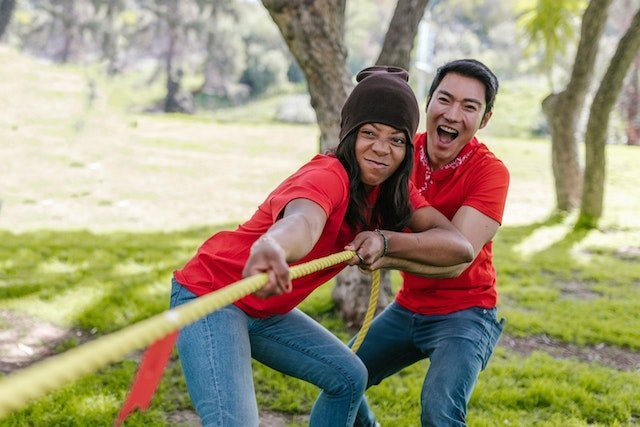Unlocking the Secrets to Achieving Personal Growth while Empowering Others
Do you ever wonder why it’s often so much easier to help others with their problems than to sort out our own? In this fascinating article, we’ll delve into the sociological and psychological reasons behind this intriguing phenomenon. We’ll also offer tips and techniques on how to effectively address our own challenges while continuing to support those around us. Let’s embark on this journey towards self-improvement and mutual growth!
- The Paradox of Learned Helplessness
Learned helplessness is a psychological state in which an individual feels powerless to change their circumstances. This can lead to a debilitating sense of defeat when it comes to solving our own problems. However, when we help others, we often bypass this mental barrier and demonstrate a surprising ability to find solutions. By understanding and overcoming learned helplessness, we can unlock our own potential for self-improvement.
- The Power of Cognitive Reframing
Our brains are incredibly adaptable, and we can learn to perceive our problems in a new light almost instantly. By practicing cognitive reframing, we can shift our mindset and approach challenges with a fresh perspective. This mental agility allows us to tackle our own issues with the same clarity and effectiveness as when we help others.
- Rewarding Ourselves with Dopamine Hits
Challenges can be reframed as opportunities for growth and success. When we do this, our brains reward us with hits of dopamine, the feel-good neurotransmitter. By seeking out challenges and embracing them, we can boost our motivation and self-esteem while simultaneously working through our own problems.
-
The Power of Mutual Support
Helping others is a powerful tool for personal growth, and it doesn’t have to be a one-way street. By seeking help from others while offering our own support, we create a network of mutual assistance that benefits everyone involved. This collaborative approach fosters trust and understanding, which can lead to even greater success in overcoming our challenges.
- Crafting an Empowering Inner Monologue
Our thoughts shape our reality. Developing a constructive inner monologue can help clarify our goals and identify the steps needed to achieve them. By consciously cultivating positive self-talk, we can overcome internal obstacles and become more effective in addressing our own problems as well as helping others.
- The Art of Balancing Small Steps and Big Dreams
Breaking down large goals into smaller, manageable tasks is a proven method for achieving success. While it’s important to focus on these smaller steps, we must not lose sight of the bigger picture. By maintaining a balance between short-term tasks and long-term objectives, we can effectively tackle our own problems and guide others toward their goals.
- The Harmony of Self-Focus and Altruism
Focusing on our own growth and well-being is essential, but it doesn’t mean we can’t also help others. In fact, self-improvement and altruism can go hand in hand. As we become better versions of ourselves, we can inspire and empower those around us to do the same.
Conclusion: Embracing the Journey of Self-Improvement and Mutual Growth
Helping others is a noble and rewarding pursuit, but we must not neglect our own needs and aspirations. By focusing on our own growth, we can set an example for others and inspire them to achieve their full potential. Through understanding the psychological and sociological factors at play, we can unlock the secrets of self-help and transform both our own lives and the lives of those around us.













